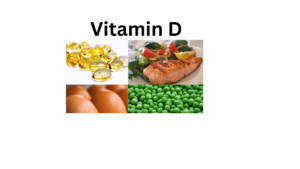7 Essential Vitamins That Prevent Hair Fall
Did you know that nearly 80% of women experience noticeable hair loss by age 60, with vitamin deficiencies being a significant yet often overlooked culprit? While many people rush to try expensive hair treatments and miracle products, the solution might be hiding in your daily nutrition.
Your hair tells a fascinating story about your body’s internal health, acting as a visible marker of nutritional status. Understanding the intricate relationship between vitamin deficiencies and hair fall can be the key to maintaining those luscious locks you’ve always desired.
The Connection Between Vitamin Deficiencies and Hair Fall: What You Need to Know
Understanding Hair Fall and Its Causes
Hair fall affects millions of people worldwide and can be a source of significant emotional distress. While some hair shedding is normal, excessive hair loss can signal underlying health issues, particularly nutritional deficiencies. Your hair’s health is closely tied to your body’s nutritional status, and vitamin deficiencies can significantly impact your hair’s growth cycle and overall appearance.
How Vitamins Impact Your Hair Health
Your hair follicles require specific nutrients to function properly and maintain healthy growth cycles. When your body lacks essential vitamins and minerals, it prioritizes vital organ functions over hair growth, leading to noticeable changes in your hair’s health and appearance. This nutritional hierarchy can result in thinning, brittleness, and increased shedding.
Key Vitamin Deficiencies Affecting Hair Health
Vitamin D
Your hair follicles contain vitamin D receptors, making this nutrient crucial for hair growth. If you’re experiencing excessive shedding and slow regrowth, you might be among the many people with insufficient vitamin D levels. A daily intake of 2,000-4,000 IU, under medical supervision, can help address this deficiency.

Biotin (Vitamin B7)
Often called the “hair vitamin,” biotin plays a vital role in maintaining healthy hair structure. While severe deficiency is uncommon, insufficient levels can lead to hair thinning and brittleness. You’ll find biotin naturally in eggs, nuts, and whole grains.
Iron
Iron deficiency is one of the most common nutritional deficiencies affecting hair health. Without adequate iron, your hair follicles can’t receive sufficient oxygen, potentially leading to a condition called telogen effluvium. Signs include increased shedding and overall thinning, often accompanied by fatigue and dizziness.
Essential Fatty Acids
Omega-3 and omega-6 fatty acids are crucial for maintaining a healthy scalp environment. When you’re lacking these nutrients, you might notice dry, brittle hair and increased hair fall. Include fatty fish, nuts, and seeds in your diet to maintain optimal levels.
The Role of Other Important Nutrients
B-Complex Vitamins
Your hair needs several B vitamins for healthy growth:
- Niacin (B3) supports scalp circulation
- Vitamin B12 aids in red blood cell production
- Folic acid (B9) helps in cell division necessary for hair growth
Zinc and Vitamin E
These nutrients work together to maintain scalp health and protect hair follicles from oxidative stress. Zinc deficiency often manifests as hair loss, while vitamin E helps maintain scalp health through its antioxidant properties.
Maintaining Healthy Hair Through Diet
A balanced diet rich in hair-supporting nutrients is your first line of defense against hair fall. Include these foods in your daily menu:
- Dark leafy greens for iron and folate
- Nuts and seeds for zinc and omega fatty acids
- Citrus fruits for vitamin C
- Eggs and lean meats for protein and B vitamins
- Fish for omega-3 fatty acids
- Legumes for biotin and protein
Taking Action Against Vitamin-Related Hair Loss
If you suspect vitamin deficiencies are contributing to your hair fall, consider these steps:
- Get a comprehensive blood panel to identify specific deficiencies
- Work with a healthcare provider to develop an appropriate supplementation plan
- Make dietary modifications to include more nutrient-rich foods
- Monitor your hair’s response to nutritional changes
Remember that while supplements can help, they should be taken under medical supervision to avoid potential interactions or overdose risks. Your body works best when nutrients come from a balanced diet, so focus on improving your nutritional intake through whole foods first.
Regular monitoring of your vitamin levels and adjusting your diet accordingly can help maintain healthy hair growth and prevent nutrient-related hair fall. Always consult with healthcare professionals before starting any supplementation regimen, as they can provide personalized advice based on your specific needs and medical history.
Taking Control of Your Hair Health Through Nutrition
Armed with knowledge about the vital connection between vitamins and hair health, you’re now better equipped to take control of your hair’s future. Remember that addressing vitamin deficiencies isn’t just about preventing hair fall—it’s about improving your overall health and well-being.
Start by making small, sustainable changes to your diet and consider consulting with a healthcare provider for personalized guidance. Your journey to healthier hair begins with understanding these crucial nutritional links and taking proactive steps to maintain optimal vitamin levels.